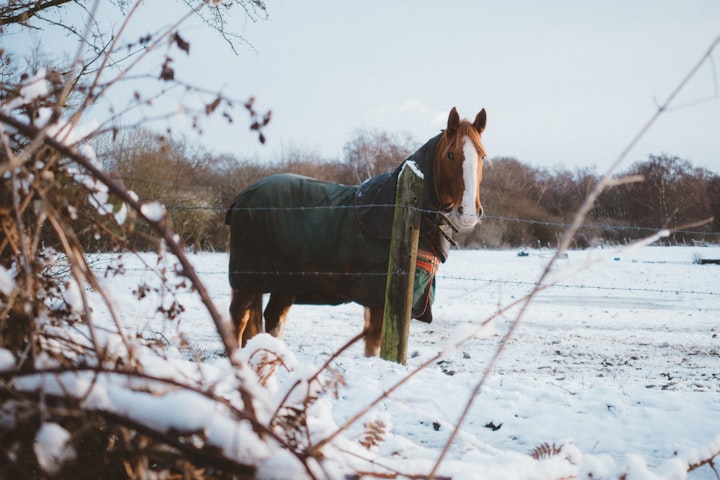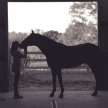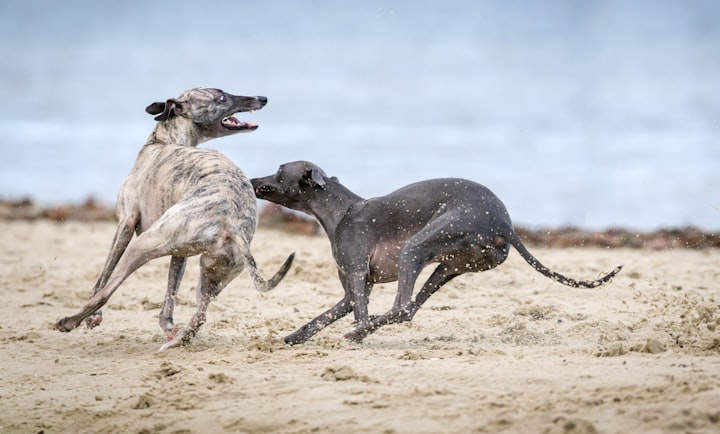Winter Wellness for Equines: Mastering Horse Care in England's Snow and Ice
Discover the benefits of outdoor time for your horse, even in winter

Caring for horses in England during the snowy and icy winter months requires thoughtful adjustments to their routine and diet, ensuring their well-being despite the challenging weather. Horses are resilient animals that can adapt to outdoor conditions, including cold weather, as long as they are provided with appropriate care.
Outdoor Turnout and Forage
Forage: Horses have evolved to chew for up to 18 hours a day, and forage should form the basis of their diet. In winter, when grass may not be readily available, it's crucial to provide enough forage to meet their behavioural needs and to help keep them warm. The digestion of fibre generates internal heat, acting as a natural heating system.
Additional Forage: If horses are living out, they might require additional forage, depending on the availability of grass. It's advisable to place more piles of hay than the number of horses to prevent conflict and place them away from troughs and gateways to minimize ground disturbance.
Shelter: Regardless of whether horses use it regularly, they need access to shelter, either natural (like hedges or tree lines) or man-made. This is especially important on cold, windy days.
Monitoring Health
Weight Monitoring: Regularly using a weigh tape and fat scoring can help monitor a horse's weight. Weigh tapes aren't completely accurate but serve as a useful tool. A weighbridge offers more precise measurements and is available through many vet practices and organizations like the British Horse Society.
Hydration and Colic Prevention: Water intake is crucial for digestion. Reduced water consumption in winter due to cold water can increase the risk of impaction colic. It’s important to ensure horses have access to water that hasn't frozen.
Exercise and Mental Health: Horses must express natural behaviours like foraging and free exercise. Restricting these, especially during winter, can lead to stress and anxiety. Hence, providing them with activities outside the stable, like hand walking or riding, is beneficial.
Risks of Colic and Laminitis from Frozen Grass
Colic: The concern that eating cold or frozen grass might cause colic due to its temperature is largely unfounded. The grass rapidly warms up once ingested, and the primary cause of colic in cold weather is reduced water intake, not the temperature of the grass.
Laminitis: However, frosty weather can pose a risk for laminitis. Cold stress on grass causes sugars to remain in the blades, increasing sugar content. This is particularly concerning for laminitis-prone horses. It's advised to limit grazing or offer hay when night-time temperatures fall below 5°C, especially following sunny days. Other factors contributing to laminitis in cold weather include circulation damage, stress from extreme temperatures, and reduced exercise.
Practical Tips for Winter Care
Avoiding Hazards: Gritting concrete areas is essential to prevent slipping due to ice and frost. Riding in slippery conditions or poor visibility should be avoided.
Feet Care: Ensuring that horses' feet are well-trimmed and balanced is crucial to prevent discomfort when walking on hard, frozen ground.
Warm Water for Drinking: Providing warm water can encourage drinking and reduce the risk of impaction colic. This is particularly important for older horses or those with dental issues.
In addition to the previously mentioned care considerations for horses during winter in England, it's important to emphasize that horses should not be confined to stables for prolonged periods. While stabling may offer protection from severe weather, restricting horses to stables can have detrimental effects on their physical and mental health. It limits their ability to express natural behaviours such as foraging, free exercise, and social interactions. To maintain their well-being, horses require regular turnout and opportunities for movement and socialization, even in colder months. Careful management of their outdoor environment, including providing shelter and appropriate forage, allows them to benefit from time outside while staying safe and healthy.
In summary, while horses can be turned out in snowy and icy conditions in England, attention to their forage, shelter, hydration, and exercise is key. Monitoring for signs of colic and laminitis, especially in susceptible horses, and taking preventive steps like providing warm water and appropriate shelter, will help maintain their health and well-being during the winter months.
About the Creator
Jane Smith
I'm a horsewoman who is angry about everything that is wrong with the horse world in the UK.
I am the woman who is not afraid to say what she thinks, and I'm not going to stop until the world is a better place for horses.






Comments
There are no comments for this story
Be the first to respond and start the conversation.